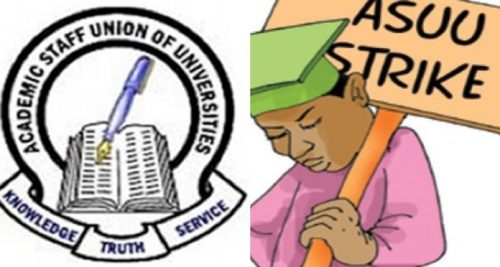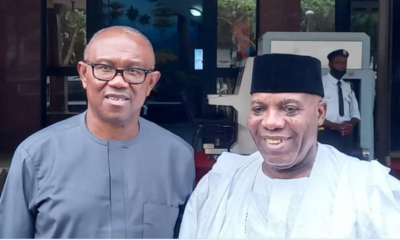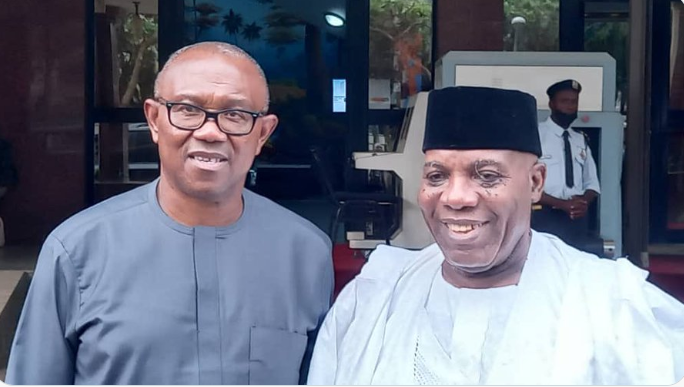The Academic Staff Union of Universities, Nsukka Zone, has expressed concern over the Federal Government’s lack of responsiveness and commitment to the agreements made with the union, warning that another strike might be inevitable if the situation continues.
The union emphasized that it has made every effort to avoid the impending strike, but the government and its representatives have not shown genuine commitment in addressing the union’s concerns.
Raphael Amokaha, Zonal Coordinator of ASUU Nsukka Zone, issued a statement in Makurdi on Wednesday, highlighting the union’s frustration.
In the statement titled “Let Good Conscience Prevail,” Amokaha reminded the public of how the union had been forced into a prolonged strike in 2022 and warned that a similar situation could unfold again.
According to him, “The issues that were in contention at that time were the renegotiation of the 2009 ASUU/FGN Agreement, poor funding of our universities, the forceful usurpation of the duties of university bursary departments by the Integrated Personnel Payment Information System (IPPIS) and the concomitant issues that arose from this breach of university autonomy, non-payment of Earned Academic Allowances (EAA) (even though this was captured in the 2023 budget) to our members and non-payment of other emoluments and entitlements.”
He noted that efforts had been made “to avoid an Industrial Action since the suspension of the last nationwide strike in October 2022, through the instrumentality of the National Industrial Court by the immediate past government, and the current government had barely paid any attention to the agitations of ASUU.”
“This attitude, unfortunate in its nonchalance, may be inspired by a delusional sense of conquest over ASUU.
“Why else would a government treat the cries and appeals of an intellectual union with such disdain and levity, especially coming in the wake of campaign promises that are still so fresh?
“ASUU in its characteristic patriotism and selflessness has been on the same issues for the last seven years.
“We do not consider it pertinent to dwell on these issues here for fear of sounding like broken records.
“The Union has bent backwards to avoid industrial disharmony in our public universities by seeking an amicable resolution of the issues in contention,” Amokaha stated.
He emphasized that “ASUU-Nsukka zone is of the firm conviction that our union has done everything sensible and possible to avert any further disruptions of academic activities in our public universities.
“And we are making this last-ditch effort that public-hearted individuals and all concerned citizens will lend their voices to our efforts to seek an amicable resolution of the concerns and agitations of our union.
“University workers are one of the very few, if not the only set of workers in Nigeria that have not had a salary review in the last fifteen years.
“We have consistently held press interactions at the various levels of our union, done protests, held town hall meetings all in a bid to avoid strikes and impress it on government to do the right thing. All these have been futile.
“This lack of commitment and sincerity on the part of government must stop.
“We wish to put it on record that government agents have been lackadaisical in their approach, non-committal in their utterances, and evasive in meetings.
“Government through its agents have chosen delay tactics over sincerity of purpose.”
He also noted that “The President of Nigeria addressed the nation on our 64th independence anniversary. In his address, there was copious reference to a month-long youth confab that the government was planning ostensibly as a way of giving our youth direction to a bright future.”
“If we may ask though, can a one-month confab compare to four years of steady academic calendars of quality education in securing the future of our youths and our nation? Can this ‘noble’ confab intended by government accommodate one tenth of the youth population in our public universities, bearing in mind that there are over seventy public universities, with a minimum of four thousand students each, with some having as many as 60 to 120,000 students?
“If the government cares about our youth, if the government cares about the citizenry, if the government cares about a better Nigeria, the first thing to do is to take education seriously.
“The way forward to avoid the looming industrial crisis in our public universities, and to secure the future of our youth and nation is for the government to let good conscience prevail.
“Even though the high hopes we had with the advent of the present regime have dimmed, we refuse to give up completely, and even in our hope, our resilience remains unwavering.
“ASUU-Nsukka Zone wishes to state in clear terms that if the government of the day frustrates our union into an industrial action, then the government must be held solely responsible for such a crisis.
“Consequently, all appeals for an amicable resolution at that time should be directed at the government and not our union,” Amokaha concluded.

 BIG STORY7 hours ago
BIG STORY7 hours ago
 BIG STORY23 hours ago
BIG STORY23 hours ago
 BIG STORY8 hours ago
BIG STORY8 hours ago
 BIG STORY1 day ago
BIG STORY1 day ago
 BIG STORY2 days ago
BIG STORY2 days ago
 BIG STORY5 days ago
BIG STORY5 days ago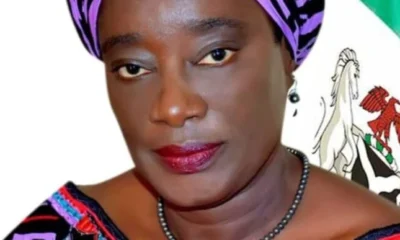
 BIG STORY1 day ago
BIG STORY1 day ago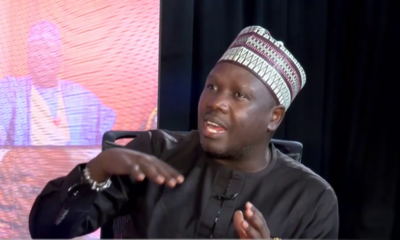
 BIG STORY1 day ago
BIG STORY1 day ago




